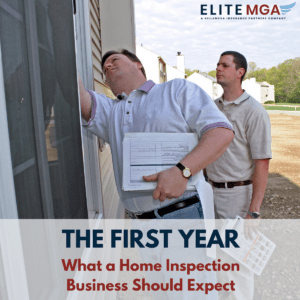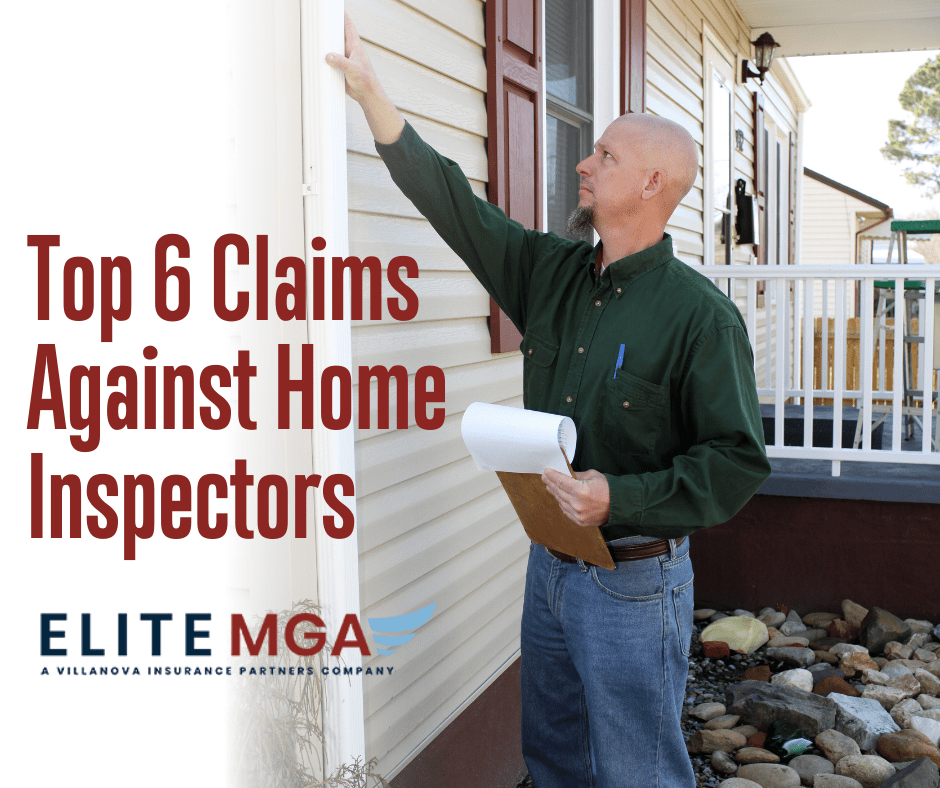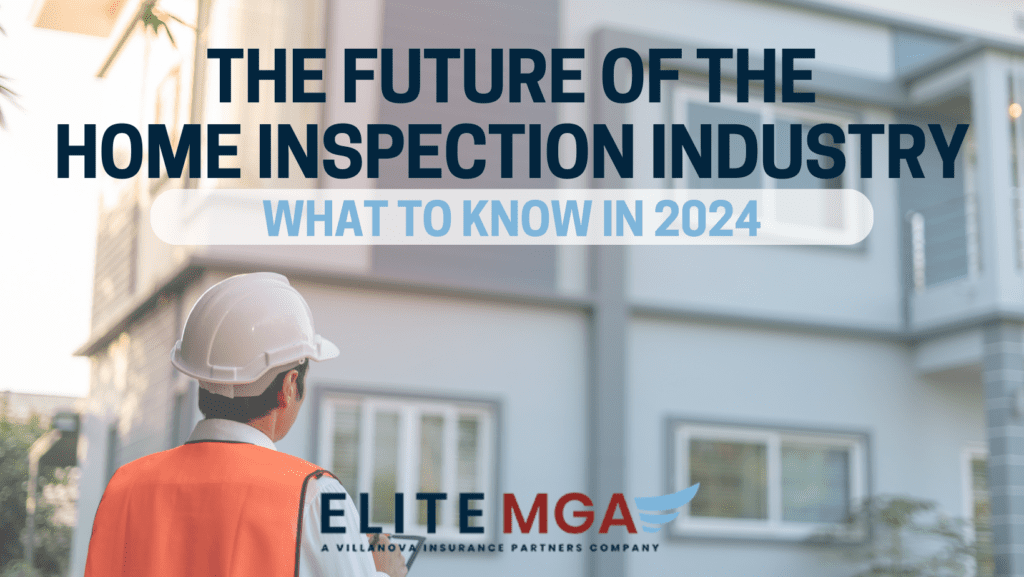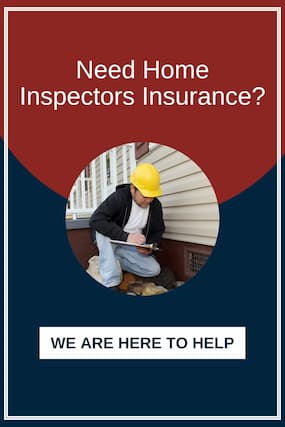
Note: This post was originally posted in February 2023 and has been updated in May 2024.
The real estate market is predicted to keep growing, and that could be a great opportunity for home inspection businesses. There is no better time than now to start a home inspection business of your own. But before you dive in, you probably have some questions:
- How do I even start a home inspection business?
- Is it profitable?
- What skills do I need to be successful?
This article will answer all these questions and more to help you decide if starting a home inspection business is the right move for you.
What is a Home Inspection Business
Why Should You Start One?
Beyond the positive industry outlook, there are several compelling reasons why starting a home inspection business could be the perfect career move for you:
- Be Your Own Boss and Build Your Dream: This career path offers the freedom to set your own schedule, manage your workload, and create a business that reflects your values and goals.
- Make a Difference in People’s Lives: A home inspection can be a game-changer for home buyers and sellers. Your expertise empowers them to make informed decisions about a significant financial investment, potentially saving them from costly surprises down the road.
- Solid Earning Potential with Growth Opportunities: The home inspection field offers a chance to build a successful business. With experience and a strong reputation, you can command competitive fees and expand your service offerings to cater to a wider clientele.
- Enjoy Flexibility and Variety: You have the freedom to choose the types of inspections you want to specialize in, whether it’s focusing on residential properties or branching out into areas like commercial inspections.
- Become an Integral Part of the Real Estate Ecosystem: If you’re passionate about the real estate industry, home inspection allows you to play a vital role in ensuring smooth transactions and protecting the interests of all parties involved.
If you’re looking for a career that offers a unique blend of independence, purpose, and growth potential, then starting a home inspection business could be the perfect fit. This blog post will equip you with the essential steps to get started and turn your vision into reality.
5 Steps to Start Your Home Inspection Business
1. Get Proper Training and Certifications:
Doing research on your state’s licensing and certification requirements is critical if you want to know how to become a home inspector. There is no national standard and every state is different.
Many home inspector membership organizations will offer their own training courses, certifications, and Standards of Practice. Unless you are clear on what is required by your state, you may be making an investment that does not meet your state’s criteria for how to become a home inspector. Most states require a home inspector to be licensed and certified. Many require taking the National Home Inspector Examination or belonging to a membership organization that meets certain minimum requirements.
2. Create A Home Inspection Business Plan
A business plan is a comprehensive outline of your business vision and purposes. It structures or organizes your business when you are starting a home inspector business. It contains information such as plans for your business services in detail, target market, financial plan, projected profits, funding sources, etc.
3. Get Home Inspector Insurance
Even the most experienced home inspector is not immune to making a mistake. Mistakes are more likely to happen in your first year of inspecting, so adequate insurance is extremely important. Protect your home inspection business from going under before it has a chance to take off with risk management.
New home inspectors should consider carrying errors and omissions insurance, and general liability insurance to reduce their risk. Beginning your home inspection business can be stressful, speaking with a home inspection insurance agency can help you decide what is the best option for you. EliteMGA will provide a free quote and breakdown of what insurance is the best fit for your needs.
State by State Insurance Requirement –
Insurance is required by most states to protect consumers in the event that an error, omission, or unforeseen issue occurs.
Learn what insurance your state requires to become a home inspector. EliteMGA’s knowledgeable team will help you choose insurance that meets your state’s requirements as well as the needs of your business.
Get the Right Equipment & Tools for Home Inspections
With every profession, there are certain tools and equipment you need to operate effectively. Here is a list of the most important ones to become a home inspector:
- Microsoft Excel, Word for data entry
- Electrical testers
- Digital camera
- Inspection report software (Spectra)
- Safety equipment such as flashlights, boots, and more.
5. Market Your Business
Marketing is necessary for your registered business to attract new clients. Invest to create and design a good website for your home inspection business so that potential customers can know about your business, services, and contact you directly.
You can also hire a marketing agency to promote your business online with SEO, Ads, or Social Media. Distributing business cards, flyers, and brochures can enhance your brand presence in your local community. Customer word-of-mouth and realtor partnership are also an excellent way to get new leads and spread your business goodwill in the market.
What Are The Startup Costs For A Home Inspection Business?
Like most startup companies, a home inspection business requires new home inspectors to invest startup capital to get their business off the ground. That amount will vary depending on services, location, size of the company, type of schooling and licensing you pursue, equipment you obtain, how much you invest in marketing, insurance premiums, etc. According to US Small Business Administration, “Some may be able to launch with roughly $3,000 in startup costs, while others might come closer to $25,000.” Regardless of how much you spend, the key is taking the time to create a budget and plan accordingly so that your business can be successful. Some ideas of what your startup funds should go towards include:
- Testing and Licensing: Perhaps the most basic question you need to answer will be what services will you offer? You’ll want to be able to show your customers that you hold adequate training and credentials. If your budget is tight, you can always get the State-minimum certifications and increase your repertoire later with continuing education.
- Plan to spend between $500-$3,500 in this category
- Equipment and Organizational Tools: Every home inspector will need to have an arsenal of tools in order to perform a proper home inspection. In addition to the physical tools, having proper organizational tools will help keep track of invoices, schedules, billing, and pricing.
- Plan on spending between $1,100-$3,000 on both equipment and organizational software.
- Marketing: Marketing is an optional and flexible expense during the first year of your home inspection business. A lot of factors will determine your budget such as how competitive your market is and what campaigns you want to invest in. Marketing is an essential part of creating awareness and bringing in new customers. To be competitive in your industry, do not forget that you will probably need to invest in a website as well as digital marketing.
- Plan on a monthly budget of $100-$500+ on marketing initiatives.
- Membership Fees: Joining industry organizations can be a great selling point to customers. They are a great way to continue to grow and build your foundation of knowledge for your home inspection business. Most importantly, an association like InterNACHI has a database for certified home inspectors which will advertise you to local customers; this will help procure some of the most qualified leads you can get.
- Plan on spending between $200-$500 per year in this category
- Insurance Policies: Insurance is a key tool in protecting your home inspection business during its first year, and your customers will also want to make sure you are properly insured. Legal defense costs and damages could devastate an uninsured home inspector business. It is important to invest in insurance for home inspectors, including errors and omissions (E&O) insurance and general liability insurance coverages.
- E&O insurance can be tailored to your specific needs and services, annual deductible options range from $1,500 to $10,000 and liability limits range from $100,000 to exceed $1,000,000.
What a Home Inspector Should Expect in Their First Year?
Like any business, the first year can be challenging as you learn the ins and outs of becoming a home inspector.
During your first year in the home inspection business, you can expect to increase your knowledge as you experience new obstacles, learn how to resolve those challenges, and broaden your understanding of how the systems within a home work together.
How Many Home Inspections Can My Home Inspection Business Expect in the First Year?
During the first year of your new home inspection business, you may not get as many leads as you’d like. It is always an ongoing process to grow your customer base and get your name out in the industry as a reputable home inspection business. Established home inspectors can expect about 300 inspections per year. However, in your first year inspecting you should expect about 130 inspections.
The key is to stay patient, invest in marketing to get your name out there and encourage your customers to share their experience and refer your home inspection business. To build your future prospects, offer to stay in contact with the clients after the inspection, make connections with realtors, offer discounts, etc. Over time, the number of yearly inspections will grow.
At EliteMGA, we have been serving home inspectors for more than 15 years. We are the only insurance entity dedicated specifically to home inspectors and that has its own captive carrier, EliteRE. We can serve you better, faster, and at a lower cost. Contact our experienced team if you want to know how to become a home inspector and the insurance requirements in your state.






